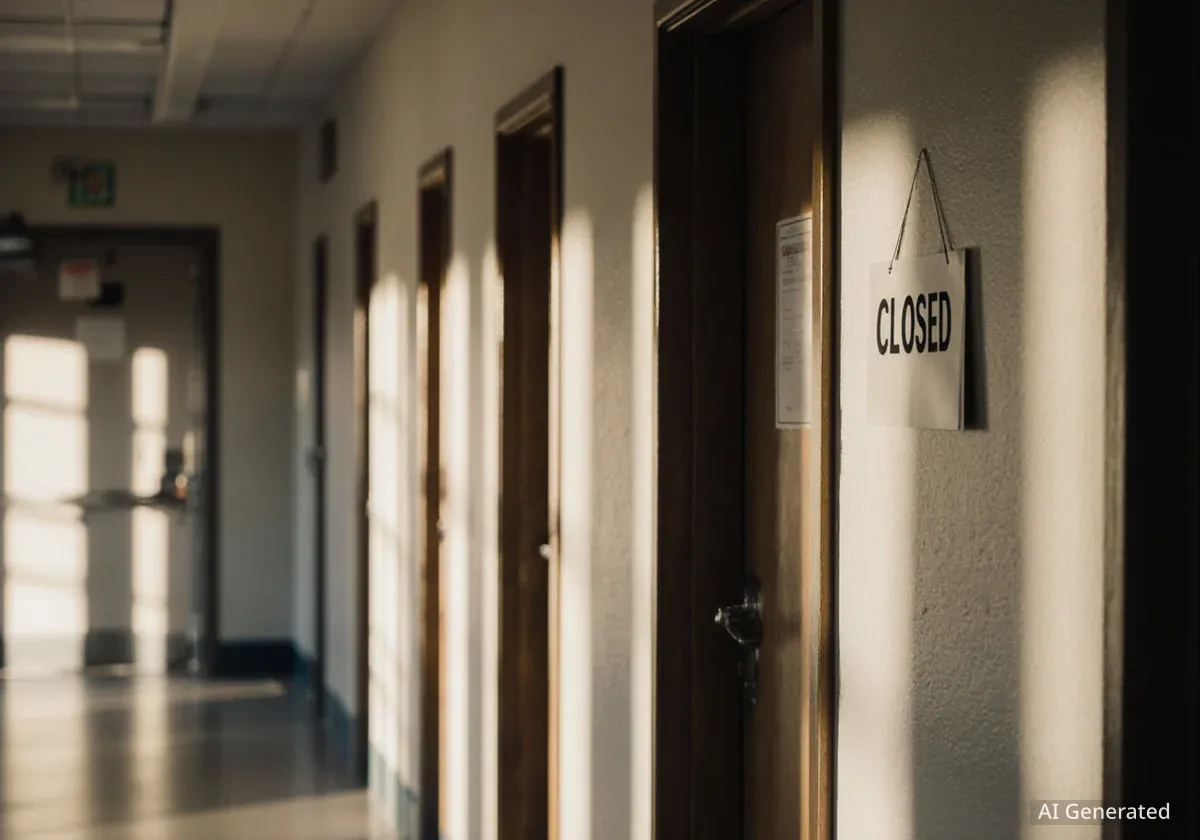A new legislative audit in Utah has recommended that school districts implement stricter, proactive policies for selecting library books. The recommendation comes after a review of 22 books from secondary school libraries found that 21 of them contained sexual content as defined by state law.
Key Takeaways
- A Utah legislative audit found that 95% of 22 reviewed school library books contained sexual content according to state code.
- The audit suggests the current system, which relies on community challenges to remove books, is insufficient.
- Recommendations include requiring school districts to create proactive policies for selecting new books.
- The audit also proposes that districts provide more support to librarians, which would offer them professional protection when books are challenged.
Audit Details High Percentage of Questionable Content
A report released by the Utah Legislature on Tuesday examined the process of how books are chosen for school libraries. Auditors reviewed a sample of 22 books found in secondary schools to check for what they termed "statutorily questionable content."
The review used definitions from the "Pornographic and Harmful Materials and Performance" section of the Utah Code as its standard. According to the audit's findings, 21 of the 22 books (95%) contained sexual content that appeared to violate this code. Additionally, 16 of the books (73%) were found to contain nudity.
"We recognize there is subjectivity in what is considered questionable or objectionable, but we found many instances of sexual content or nudity that appear to violate Utah Code," the audit stated. The report concluded that most of the reviewed books would likely be classified as "objective sensitive materials" if they were formally challenged under state law.
By the Numbers
- 22: Total number of books reviewed by the audit.
- 95%: Percentage of reviewed books found to have sexual content.
- 73%: Percentage of reviewed books found to contain nudity.
- 7: Number of school districts included in the book search.
How Books Were Selected and Reviewed
The audit team selected the 22 books from a larger list of 186 titles that was provided by an unnamed "concerned legislator." This initial list rated books on a scale from zero to five, with five being the most concerning.
To create their review sample, auditors randomly reordered the legislator's list and selected titles. They then searched for these books in the public library catalogs of 42 secondary schools across seven districts: Davis, Weber, Salt Lake City, Granite, Canyons, Alpine, and Washington.
The process involved checking multiple high schools and junior high schools. If a book was located in at least one library within these districts, it was added to the in-depth review list. The auditors ultimately selected 20 books through this method and added two more based on specific legislative concerns.
Background on Utah's Book Laws
This audit follows previous legislative action on school library content. In 2022, lawmakers passed HB374, which established guidelines for removing books with sexually explicit material. This was followed by HB29 in the 2024 session, which aimed to clarify the original law. Under the current system, a book must be challenged by a community member to initiate a review process by a local committee.
Language and Violence Also Examined
Beyond sexual content and nudity, the audit also reviewed the books for strong language, specifically noting the use of "f-words and c-words." The frequency of such language varied significantly among the titles.
"In one book alone, we found that the f-word appeared on more than 300 pages, sometimes with more than one instance per page. Some books had no 'f-words' while others had more than 100," the report detailed.
The audit found that instances of violence were less common. The highest count in a single book was 18 instances of violence.
Recommendations for Proactive Policies
The audit concluded that while the existing process for challenging books already in libraries is functioning as designed, it is a reactive measure that fails to prevent questionable materials from entering collections in the first place.
"The problem is that this relies on individuals finding out about a book and challenging it. As found in this report, this process is not removing all questionable books," the audit explained.
This finding echoes a separate audit from June, which noted that librarians cannot vet every single book and that bulk packages ordered to stock new libraries can inadvertently introduce sensitive materials.
A Shift from Reaction to Prevention
To address this issue, the audit put forth several key recommendations aimed at creating a more proactive system. The central suggestion is for the Legislature to consider requiring all local education agencies (LEAs), or school districts, to establish a formal policy for the selection of new library books.
The report suggests that instead of placing the sole responsibility on individual librarians, districts should provide them with support and clear standards for making selections. This approach, according to the audit, would serve two main purposes:
- It would provide librarians with "additional professional protection" if a book they selected is later challenged.
- It would help safeguard students by preventing questionable content from reaching library shelves in the first place.
The audit summary reinforces this point: "By adopting stronger, proactive selection policies, LEAs can provide educators with clearer standards, offer professional protection when challenges arise, and safeguard students in alignment with legislative intent and Utah Code."





